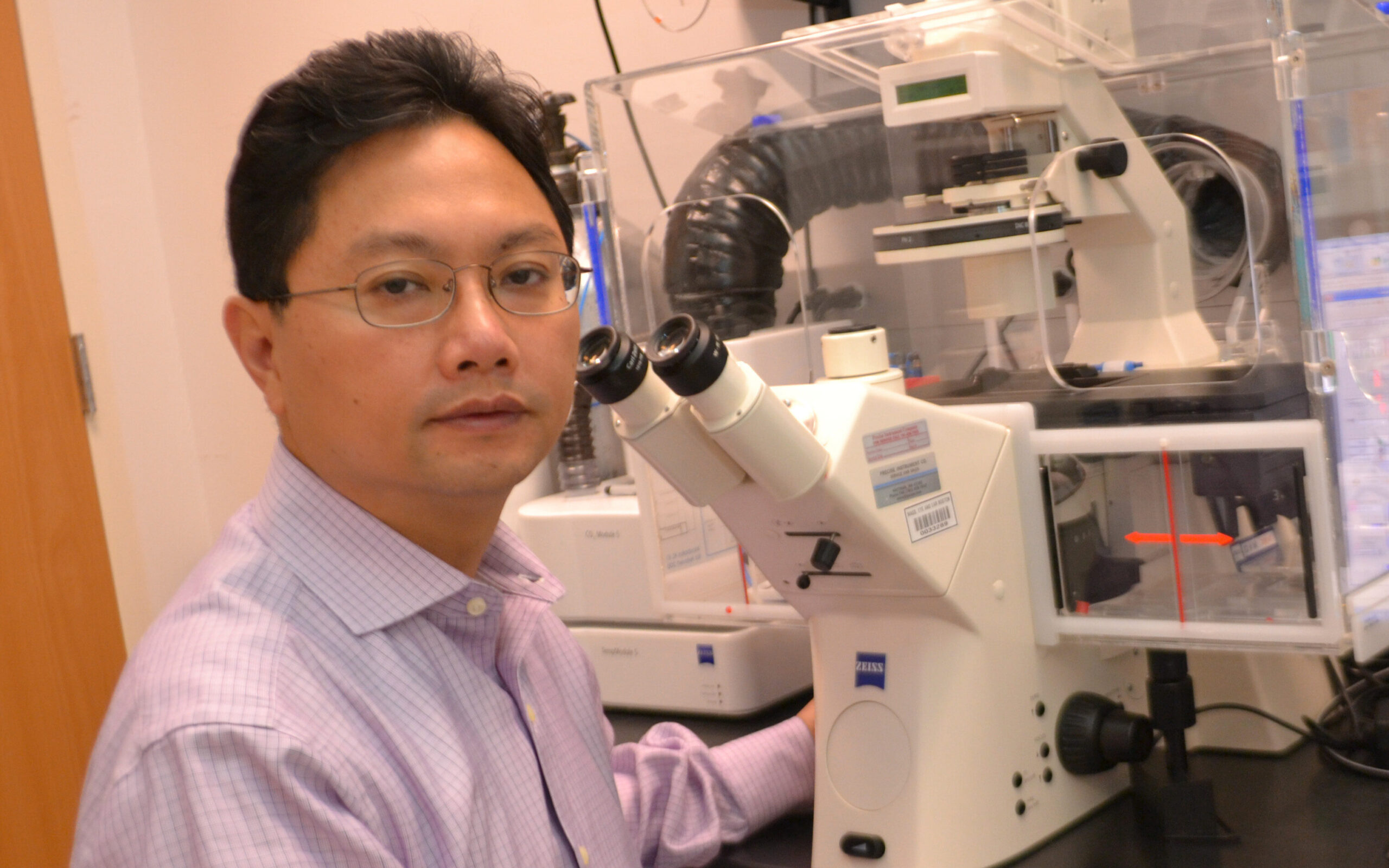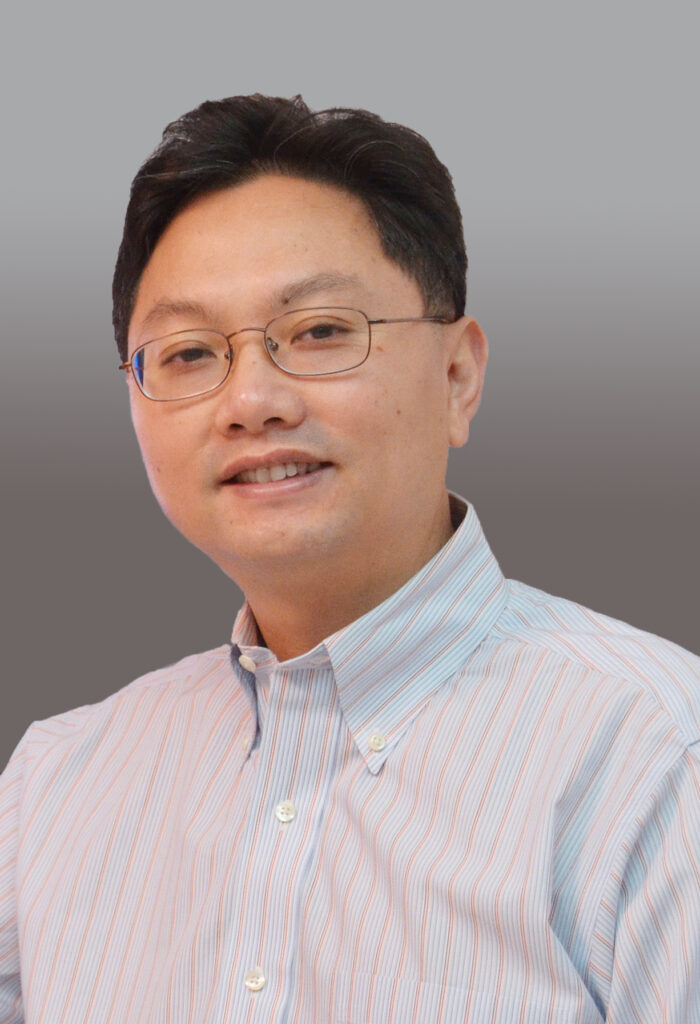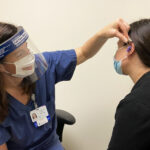The Mass Eye and Ear Eaton-Peabody Laboratory Associate Professor Zheng-Yi Chen speaks about his efforts to develop gene therapies for hearing loss and his recent success in rescuing hearing loss in aging mice.

Throughout his career, Zheng-Yi Chen, DPhil, has been at the forefront of hearing loss research. Since starting his lab at Mass Eye and Ear in 2008, Chen has made significant advancements in understanding and treating hearing loss. He and his colleagues have described how several genes individually contribute to the condition and made key discoveries about the development and regeneration of mouse inner ear hair cells. In recent years, using genetic engineering techniques, he and his team have successfully restored hearing loss in mouse models and hope to one day take the technology to the clinic.
Genetic hearing loss affects 1 in 500 newborns. Most of these cases are due to recessive genetic hearing loss, or DFNB. DFNB8, a subtype of DFNB, can only be treated with cochlear implants, but for some patients, these treatments stop working well as their hearing loss progresses. In a new study published in Molecular Therapy, Chen and his colleagues used gene therapy to restore hearing in a mouse model of DFNB8, becoming the first to do so in aging mice.
Last year, Chen’s research was selected as one of the “Disruptive Dozen” gene and cell therapy technologies most likely to have a significant impact on health care over the next several years at the Mass General Brigham World Medical Innovation Forum. Mass General Brigham recently launched its Gene and Cell Therapy Institute to help translate scientific discoveries made by researchers like Chen into first-in-human clinical trials and, ultimately, life-changing treatments for patients.
In a Q&A, Focus spoke to Chen about his research efforts and the progress he’s made in developing therapies for all forms of hearing loss.
Q: How did this project get started and what got you interested in this research question?
I have been working on genetic hearing loss for decades, from the identification of deafness genes to the study of their functions. But to me, the most important aspect of my research is to develop therapies for patients with genetic hearing loss, none of which currently exist.

This project started with a group of my colleagues including Dr. Xuezhong Liu of the University of Miami and Dr. Hinrich Staecker of Kansas Medical Center. A few years ago, we got together to decide, given what we knew back then, on a good candidate gene for gene therapy. Gene therapy has come a long way in recent years and could potentially be very effective at treating some forms of genetic hearing loss.
We thought that a type of human genetic deafness gene called DFNB8 might be a good candidate for gene therapy since it’s due to mutations in a single gene: TMPRSS3.
For DFNB8 patients, who experience progressive hearing loss, a cochlear implant is the standard treatment option. In some patients, however, cochlear implants stop working well over time. Those patients are deprived of the only treatment they rely on.
Q: What were your key findings and what are the implications of those findings?
The first step in developing a treatment for humans is typically to develop pre-clinical treatments in mice. We wanted to rescue hearing loss in a model of DFNB8. First, we created a mouse model with a human TMPRSS3 mutation and found that these mice developed late-onset progressive hearing loss just like human patients. We then delivered a normal copy of the human TMPRSS3 gene using an adeno-associated virus and successfully rescued hearing loss in aging mice.
This means that a virally mediated gene therapy, either by itself or in combination with a cochlear implant, could potentially treat genetic hearing loss. This was also the first study that has rescued hearing in aging mice, which points to the feasibility of treating patients with DFNB8 even at an advanced age. The study also establishes the feasibility of other gene therapies in the aged population.
Q: How did you first get interested in studying hearing loss?
I’m a geneticist by training and during my PhD, 30 years ago, I cloned one of the first deafness genes. But since I started my research career, I have wanted to develop therapies for patients with hearing loss. I find it very frustrating for patients to know that they have genetic hearing loss and know the cause (such as a defective gene). Often this means that their hearing loss will get worse and there’s nothing that can be done about it. That’s what motivated me to develop treatments for hearing loss.
Q: Can you tell us more about the work you do at Massachusetts Eye and Ear? Are there any projects you’re particularly excited about?
There are many forms of hearing loss including genetic, environmental, and age-related hearing loss. Each type of hearing loss has unique challenges and requires a different type of treatment. For example, gene therapy and genome editing therapy will likely be effective treatments for forms of genetic hearing loss, whereas inner ear hair cell regeneration may be good options for age- or damage-related hearing loss. That’s the reason we’re exploring several potential therapeutic avenues, including gene therapy, genome editing therapy, hair cell regeneration, and drug therapy.
I’ve witnessed tremendous progress in creating potential treatments for hearing loss over the past 10 years. We, for example, have recovered hearing in multiple mouse models. Now, to me, the way forward is to start clinical trials for some patients.
Q: What are your favorite parts of your job?
I am thrilled to have the opportunity to develop treatments for hearing loss, especially since there is no single FDA-approved drug. I can feel how much the field has advanced and how close we are to coming up with treatments for some forms of hearing loss. I love to work with talented and dedicated people at Mass Eye and Ear on projects that could have a long-lasting impact on people’s lives. Lastly, I enjoy working with my collaborators, and each of us has made a unique contribution to the project.




Is there any hope for an adult who woke up one day with complete hearing loss in both ears? And also has tinnitus in both ears